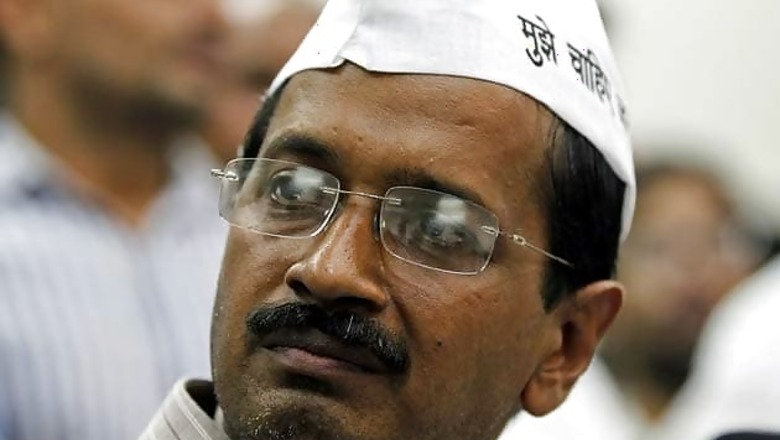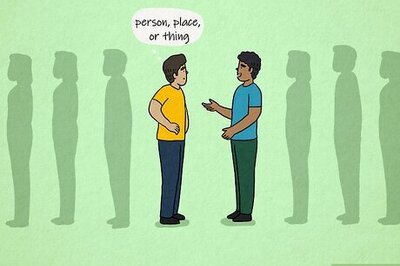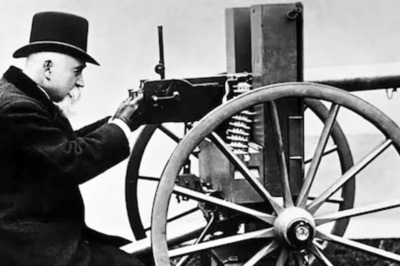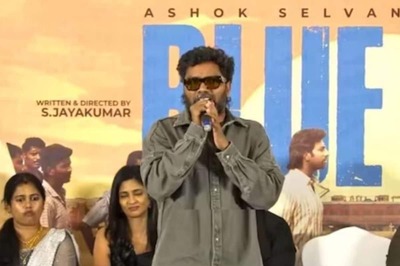
views
New Delhi: For Arvind Kejriwal, who assumed charge as Delhi's eighth Chief Minister on Saturday, it has been a remarkable journey since AAP's drubbing in the 2014 Lok Sabha polls as he led the party to a spectacular victory in Delhi.
46-year-old Kejriwal, known for his sheer determination and grit, devised an "out-of-the-box" campaign strategy to enthuse the fledging party to a historic victory in the Assembly polls winning 67 of the 70 seats.
It was dubbed as a David vs Goliath battle considering enormous effort put by BJP to wrest power in the capital.
AAP's triumph is not only seen as a landslide victory but also a rallying point for the opposition to take on the BJP government, in the process propelling Kejriwal as a major figure in the national political scene.
Kejriwal's major challenge would be to implement his poll promises, some of which critics feel, will not be easy to fulfil.
The stupendous victory was being considered significant in the political landscape as the bespectacled IITian put a brake to the string of electoral triumphs for BJP since the May Lok Sabha polls. All major opposition parties saw AAP's victory as a signal for opposition forces to come together to take on the saffron challenge.
Quietly spreading his party's wings after the Lok Sabha poll debacle in which AAP failed to open its account, the activist-turned-politician achieved the feat by taking his "participative politics" model to the masses through a strong army of dedicated volunteers and his sheer perseverance.
Kejriwal, who had faced huge criticism for resigning as the Chief Minister after remaining in power for 49-days, expanded the party's base by anchoring an unconventional approach to take AAP beyond his support base of the poor and lower middle class families.
Promising change, Kejriwal appeared much mellower during the campaign this time as he apologised to the people for quitting government on February 14 last year while successfully connecting with all sections.
Kejriwal attacked both BJP and Congress on the issues of corruption, exorbitant rise in power and water tariff, safety of women and clearly managed to make a huge dent in the traditional vote banks of both the parties.
Emerging as a mascot of an alternative brand of politics, the engineer-turned-civil servant had changed the political discourse when in the last Delhi polls he decimated Congress after 15-year rule by winning 28 seats, handing out a crushing defeat to then Chief Minister Sheila Dikshit in her New Delhi seat.
He had courted controversy within weeks of becoming Chief Minister last year by sitting on a dharna in the heart of Delhi near Parliament House over his demand for suspending three police officers for allegedly not acting against criminals.
He had also come under attack on the governance agenda.
Belying perception of being a "non-actor or no factor" in the Delhi Assembly elections by Congress and BJP, Kejriwal, a man of simple tastes, came into prominence during the agitation led by 75-year-old activist Anna Hazare in support of Jan Lokpal Bill in 2011.
Born on August 16, 1968 in Hisar in Haryana to Gobind Ram Kejriwal and Gita Devi, the soft-spoken man with strong conviction, was part of Team Anna, along with first woman IPS officer Kiran Bedi, lawyer Prashant Bhushan and others.
The Ramon Magsaysay award winner was the civil society representative of the committee constituted by the Government to draft the Jan Lokpal bill, following the campaign for introduction of the anti-graft legislation.
After feeling "betrayed" by the government when it rejected their draft, Congress and other leaders challenged him to join politics, win elections and come to Parliament if he wanted to "fight system from within", root out corruption and get the Jan Lokpal Bill passed.
Known for taking up challenges, the indefatigable Kejriwal decided to take a plunge into politics and formed the "Aam Aadmi Party" on November 26, 2012, after a formal split in Team Anna.
A bright academic, Kejriwal passed out as a Mechanical Engineering graduate from IIT Kharagpur.
He worked in Tata Steel for three years since 1989 and resigned in 1992 to take up the UPSC examination which he cleared to become an Indian Revenue Service(IRS) officer.
Being in government service, Kejriwal was active in taking up social cause and worked for implementation of Right to Information Act(RTI) at grass root level.
His efforts in the enactment of the RTI Act to empower the poorest citizens of India won him the Ramon Magsaysay Award for Emergent Leadership in 2006.
In February 2006, after resigning as Joint Commissioner in the Income Tax Department he became a full-time activist and started an NGO, Public Cause Research Foundation, with his award money as a corpus fund.
A strict vegetarian who prefers home-made food, Kejriwal is married to Sunita, who is also an IRS officer and his batchmate from National Academy of Administration in Mussoorie.
The couple have two children, daughter Harshita and son Pulkit. He has a younger sister and brother.




















Comments
0 comment